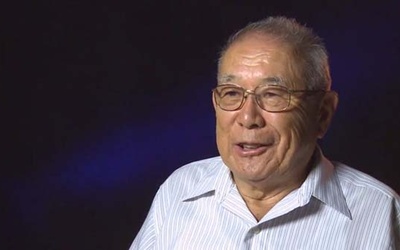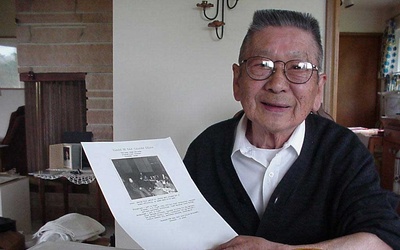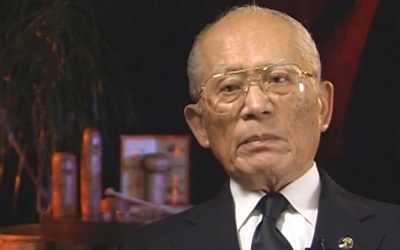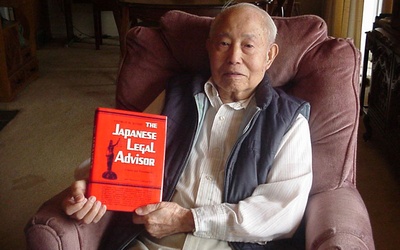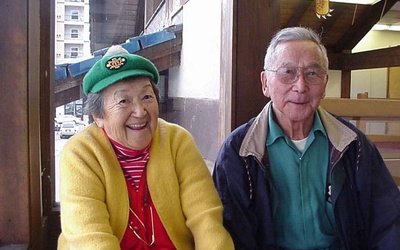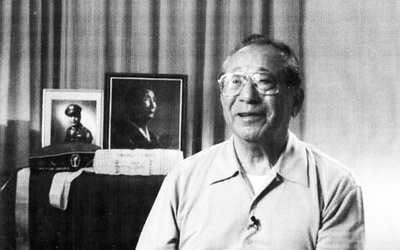Quiet Warriors
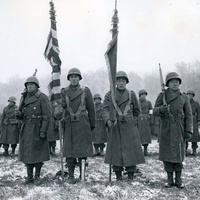
On February 19, 1942, two months after the Japanese Navy attacked Pearl Harbor, President Roosevelt issued Executive Order 9066. Almost 12,000 Japanese and Japanese Americans were sent to concentration camps. Among them, two thirds were American-born Nisei. Many of the young men were in two groups: “No-No Boys” and volunteers (or drafted) for the U.S. Army. Now that they are aging, the quiet Nisei veterans are willing to tell their unspoken stories. Having lived through the war themselves, their wishes for peace are immense.
*The 13 articles in this series were originally published in The North American Post-Northwest Nikkei during 2003-2004. The North American Post recently edited and republished them on their website.
Stories from this series
A Tribute
Dec. 20, 2021 • Mikiko Amagai
I stopped writing the series “Quiet Warriors” unexpectedly. “Mikiko, you have a bad reputation,” Tosh Okamoto said when I called him for his turn. He had originally brought the list of surviving Nisei veterans to interview to the NAP office. “I’m not ready…” he had replied. “What do you have to be ready for? You can just tell me what you saw or how you feel about it now,” I assured him. “No, no. You know, people die after you …
Yoshito Iwamoto
Nov. 17, 2021 • Mikiko Amagai
“They always thought I was Japanese while in the Philippines. Several of us went to a café. A guy asked, ‘Do you want some Japanese tea?’ And he ran to a piano and played ‘Gunkan Marchi’ (Warship March) and then ‘Shina no Yoru’ (China Nights). They believed we were Japanese in spite of our US Army uniforms.” Yoshito Iwamoto remembers those days, smiling. He was sent to the Philippines and then to Japan as a MIS (Military Intelligence Service) translator …
Takashi Matsui
Nov. 3, 2021 • Mikiko Amagai
“They say, ‘History is written by the winners.’ Well, it’s not fair to try only the losers. What about the ones who dropped an A-bomb and killed hundreds of thousands civilians in Hiroshima? There are some Americans who criticized the proceedings at the Tokyo Trial in 1946 but the United States was the winner. They said that it should have been conducted by the neutral countries, not the winners.” Such are the thoughts of Takashi Matsui, who was involved in …
George Koshi
Oct. 6, 2021 • Mikiko Amagai
“I forgot Japanese,” George Koshi, a 92-year-old MIS veteran, modestly said in Japanese with a perfect Japanese accent. He was the only American legal officer in Japan during its occupation period after World War II (1945-1952) who spoke Japanese. Between George and a framed picture of his late wife, Ai, smiles his daughter, Joyce, who was born during this period. George’s parents came from Kumamoto. “My father first came to Colorado, then my grandfather arranged a wife for him and …
Jimmie Kanaya
Sept. 15, 2021 • Mikiko Amagai
“No, I didn’t get discharged. I stayed (in the U.S. Army after World War II) and went to Korea,” said Jimmie Kanaya. As a teenager, he was always fascinated with all the military branches. “Before the war was over in Japan, they (the army) wanted to train military government officers to occupy Japan. So, we started (studying) Japanese, Japanese religion, customs… I even taught Japanese. ‘Doko ni ikimasuka1’ or something like that, you know.” But when the war was over …
Min (Minoru) Tsubota
Aug. 29, 2021 • Mikiko Amagai
“I had it in my backpack. I couldn’t wash it. Okaasan collected 1,000 stitches at Tule Lake from 1,000 different women, one stitch for one. If you were born in the Year of Tiger, you can stitch as many as you want because tigers are strong and it’s good luck.” Min Tsubota, a 442nd Regimental Combat Team veteran, was showing his 60-year-old “senninbari,” a long sash with 1,000 stitches. Though it has a few small stains, it still looks almost …

